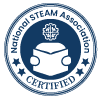
A STEAM toy accreditation program is typically a system or set of criteria established to evaluate and recognize toys that align with the principles of STEAM education. STEAM stands for Science, Technology, Engineering, Arts, and Mathematics. STEAM toys are designed to promote learning and development in these specific areas.
Accreditation programs for STEAM toys often involve a comprehensive assessment of a toy’s educational value, engagement, and ability to promote skills related to science, technology, engineering, arts, and mathematics. These programs may be run by educational organizations, toy associations, or other relevant entities.
The purpose of a STEAM toy accreditation program is to help parents, educators, and consumers identify toys that provide meaningful educational experiences for children. Accredited toys are expected to contribute to the development of skills such as problem-solving, critical thinking, creativity, and an understanding of scientific and mathematical concepts.
Accreditation criteria may vary among different programs, but they often include considerations such as age-appropriateness, safety, the incorporation of STEAM principles, and the overall educational impact of the toy. Manufacturers and developers of educational toys may seek accreditation to demonstrate that their products meet established educational standards and contribute to positive learning experiences for children.
